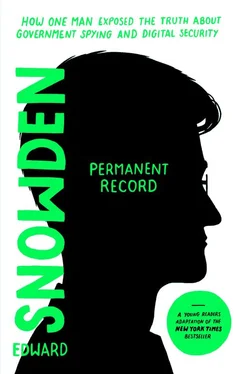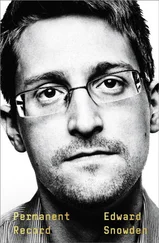When he returned home and found out what I’d done to the NES, he wasn’t angry, much to my surprise. He wasn’t exactly pleased, either, but he was patient. He explained that understanding why and how things had gone wrong was every bit as important as understanding what component had failed: figuring out the why and how would let you prevent the same malfunction from happening again in the future. He pointed to each of the console’s parts in turn, explaining not just what it was, but what it did and how it interacted with all the other parts to contribute to the correct working of the mechanism. Only by analyzing individual parts could you determine whether a mechanism’s design was the most efficient to achieve its task. If it was efficient, but malfunctioning, then you fixed it. But if it was inefficient, then you made modifications to improve the mechanism. This was the only proper protocol for repair jobs, according to my father, and nothing about it was optional—in fact, this was the fundamental responsibility you had to technology.
Like all my father’s lessons, this one had broad applications beyond our immediate task. Ultimately, it was a lesson in the principle of self-reliance, which my father insisted that America had forgotten sometime between his own childhood and mine. Ours was now a country in which the cost of replacing a broken machine with a newer model was typically lower than the cost of having it fixed by an expert, which itself was typically lower than the cost of sourcing the parts and figuring out how to fix it yourself. Most people used technology daily and yet failed to understand the basic operation and maintenance of the equipment they depended on. It meant when their equipment worked, they worked, but when their equipment broke down, they broke down, too. Put another way, their possessions possessed them.
It turned out that I had probably just broken a solder joint, but to find out exactly which one, my father wanted to use special test equipment that he had access to at his laboratory at the Coast Guard base. I suppose he could have brought the test equipment home with him, but for some reason he brought me to work instead. I think he just wanted to show me his lab. He’d decided I was ready.
What I remember most are the screens. The lab itself was dim and empty, the standard-issue beige and white of government construction, but even before my father hit the lights I couldn’t help but be transfixed by the pulsating glow of electric green. Why does this place have so many TVs? was my first thought, quickly followed up by, And why are they all tuned to the same channel? My father explained that these weren’t TVs but computers.
He went on to show them to me, one by one, and tried to explain what they did: This one processed radar signals, and that one relayed radio transmissions, and yet another one simulated the electronic systems on aircraft. I won’t pretend that I understood even half of it. These computers were more advanced than nearly everything in use at that time in the private sector. Sure, their processing units took a full five minutes to boot, their displays only showed one color, and they had no speakers for sound effects or music. But those limitations only marked them as serious.
My father plopped me down in a chair, and for the first time in my life, I found myself in front of a keyboard. But these computers were not gaming devices, and I didn’t understand how to make them work. There was no controller, no joystick, no gun.
My father told me that every key on the keyboard had a purpose. To demonstrate, he reached over me, typed a command, and pressed the enter key. Something popped up on-screen that I now know is called a text editor. Then he grabbed a Post-it Note and a pen and scribbled out some letters and numbers. He told me to type them up exactly while he went off to repair the broken Nintendo.
The moment he was gone, I began pecking away at the keys. A left-handed kid raised to be a righty, I immediately found this to be the most natural method of writing I’d ever encountered.
10 input “what is your name?”; name$
20 print “hello,” + name$+ “!”
After a whole lot of trial, and a whole lot of error, I finally finished. I pressed enter, and, in a flash, the computer was asking me a question: what is your name?
I was fascinated. The note didn’t say what I was supposed do next, so I decided to answer and pressed my new friend enter once more. Suddenly, out of nowhere, hello, eddie! wrote itself on-screen in a radioactive green that floated atop the blackness.
This was my introduction to computer programming: a lesson in the fact that these machines do what they do because somebody tells them to, in a very special, very careful way. And that somebody can be seven years old.
Almost immediately, I grasped the limitations of gaming systems. They were stifling in comparison to computer systems. They confined you to levels and worlds that you could advance through, even defeat, but never change.
The repaired Nintendo console went back to the den, where my father and I competed in two-player Mario Kart , Double Dragon , and Street Fighter . By that point, I was significantly better than him, but every so often, I’d let him beat me. I didn’t want him to think that I wasn’t grateful.
I’m not a natural programmer, and I’ve never considered myself any good at it. But I did, over the next decade or so, become good enough to be dangerous. I was fascinated by the thought that one individual programmer could code something universal, something bound by no laws or rules or regulations except cause and effect. There was an utterly logical relationship between my input and the output. If my input was flawed, the output was flawed; if my input was flawless, the computer’s output was, too. I’d never before experienced anything so consistent and fair, so unequivocally unbiased. A computer would wait forever to receive my command but would process it the very moment I hit enter, no questions asked. Nowhere else had I ever felt so in control.
I was just shy of my ninth birthday when my family moved from North Carolina to Anne Arundel County in Maryland. To my surprise, I found the name Snowden everywhere. I only learned later that in 1686, England’s King Charles II had granted my paternal ancestors nearly two thousand acres of land in the New World, much of which eventually became Anne Arundel County.
Today, the former Snowden fields are bisected by Snowden River Parkway, a busy four-lane commercial stretch. Nearby is Fort George G. Meade, the second-largest army base in the country and the home of the National Security Agency (NSA). Fort Meade, in fact, is built atop land that was once owned by my Snowden cousins.
I knew nothing of this history at the time: My parents joked that the state of Maryland changed the name on the signs every time somebody new moved in. They thought that was funny, but I just found it spooky. We’d only moved about 250 miles, yet it felt like a different planet. I had exchanged the leafy riverside for a concrete sidewalk, and a school where I’d been popular and academically successful for one where I was constantly mocked for my glasses, my disinterest in sports, and especially for my strong Southern drawl.
I was so sensitive about my accent that I stopped speaking in class and started practicing alone at home until I managed to sound “normal.” Meanwhile, my grades plummeted, and some of my teachers decided to have me IQ-tested as a way of diagnosing what they thought was a learning disability. When my score came back, I don’t remember getting any apologies, just a bunch of extra “enrichment assignments.”
Читать дальше












